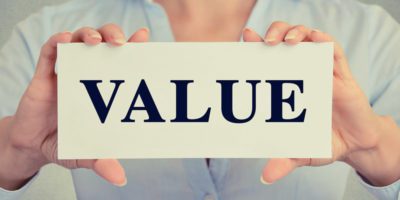Professor Simon Clark has been Head of the School of Economics at the University of Edinburgh since 2009. He was educated at the London School of Economics and prior to joining Edinburgh he worked as an economic analyst in the City, and as a lecturer at Bristol University. He has held visiting positions at Queen’s University, Canada, and at the European University Institute.

“…We need to remember that caring responsibilities are not exclusively undertaken by women, so in framing our new policies, we’ve tried to make sure they are of benefit to men and women equally. We need to make sure we don’t make unwarranted assumptions about the roles that people play in family life or outside work in general…”
Simon, please can you briefly tell us about your career to date and how you first became interested in economics?
I first studied Economics at school. I liked the subject because it seemed to be a good mix of things that interested me in the economy and I also liked its techniques – it’s a very analytical subject. So I studied it at university, and then did a Master’s Degree, both at LSE. I worked as an economist in the City for a couple of years, but I was always attracted back to academia, so I went back to LSE to do a Ph.D.
After that I had a job in Bristol for a short while, but I’ve been in Edinburgh for almost all of my academic life. I’ve 
As part of being in middle management at the university you get drawn into gender related issues, and diversity more generally, so I became aware of some of those questions even before I started working on the Athena SWAN accreditation.
As from May 2015, the ECU [Equality Challenge Unit] began accepting Athena SWAN applications from arts, humanities, social sciences, business and law departments in addition to applications relating to STEM disciplines. Why is it important for economics departments to get on board?
In a purely instrumental way, economics departments are concerned about making sure that they take the best students, that they educate them in the best way, and they are able to recruit the best academic staff – their teachers and their researchers – and they develop them, and treat them well and fairly.
So, to be able to function well as academic departments, they want to ensure that they are hiring and developing the best talent and teaching the best students, regardless of their gender. It’s clear if you look at some of the data that although in economics it’s not quite as bad as some of the sciences, there’s a disproportionately low number of women studying economics as students.
It varies from institution to institution, but it’s roughly 40%. That’s a lower proportion than in the undergraduate population as a whole. For us at postgraduate level it’s about 50/50, but nevertheless, there is a relatively low representation of women in economics as students, but also amongst the academic staff.
It’s an important question as to why the proportion of women is so low amongst junior academic staff, and why so few women are in senior positions. In the UK and in many US universities, the proportion of women at the senior level is really quite low. So does that imply that we’re not taking advantage of the talent that is out there? Why are people not applying, why are we not appointing them or promoting them?
These are difficult and important questions and what the Athena SWAN process tries to do is to get people to think about them, and it obliges us to do that in a certain way.
What is it like making a first time application and what has the process been?
It’s quite a lot of work! It’s thought-provoking because we’ve done a survey of the staff – both the support staff and the academic staff – to try and get their views on various processes within the department. So this looked at promotions, staff development and these type of things. It’s been fascinating to get an idea of the way people think about the way things work in the department.

So we put all that together into a report and we ended up with an action plan. That’s been quite a substantial amount of work. I had a team working with me, so I worked closely with quite a few people in the School of Economics here, and also in other departments. I had excellent support from both inside and outside the School and that was incredibly useful.
What can you learn from colleagues in other departments who already hold the Charter?
There was an Athena SWAN network within the university and I was a part of that. In the year just gone I chaired the network. When we met, people swapped best practice and ideas. There is a whole range of departments represented from right across the university. Some departments were at different stages of the process of applying for different levels, or perhaps renewing their charter.
So there were quite a few of the social sciences and humanities who were going for things for the first time, and several of the sciences and the medical sciences who were either renewing or trying to get a higher level of award.
That was an opportunity to learn from what other departments were doing, to find out what the issues were – so some of the practical problems of putting together a submission, or queries to do with data, for example. There were action points and new ideas suggested and that were very informative because economics departments are very different from a veterinary medicine department, for example, so it was helpful to learn about issues and the ideas people were coming up with from other departments.
In Edinburgh there was a network of committees within the university with equality issues generally that fed into the institutional Athena SWAN award, so we learnt about these too. I was able to pick up some ideas and contribute. I was quite involved in what was going on in other departments so I got a good sense of where the differences and similarities are.
Compared to other social sciences, economics is more similar to some of the sciences, in terms of the low proportion of female students, the low proportion of female academic staff and the leaky pipeline, where the proportion of female staff starts to diminish as seniority increases, in some cases quite rapidly. The reasons for this are extremely complicated and it’s important not to generalise.
What is it important for male and female colleagues to work towards accreditation together?
It’s very important that this is not seen only as a thing that women are doing. Men have to be on board as well so they see the importance of it. We’ve tried to work towards that as otherwise there is a danger that it doesn’t enter the mainstream of departmental thinking.
Flexible working has been an issue for us in one or two cases. Men do have family and caring responsibilities, so things like having meetings within core hours have been an important thing for us. We used to have seminars relatively late in the afternoon and then they would finish quite late, but now we’ve done our best to make sure that seminars are all over by 4pm, and that meetings don’t go on too late and don’t start too early.
One of the main reasons we rescheduled our seminars so they happened earlier in the afternoon was because we found some colleagues, including men, weren’t able to attend them all because they had to get back to their families. We need to remember that caring responsibilities are not exclusively undertaken by women, so in framing our new policies, we’ve tried to make sure they are of benefit to men and women equally. We need to make sure we don’t make unwarranted assumptions about the roles that people play in family life or outside work in general.
Why are women so underrepresented in economics?
It’s a difficult one. There’s nothing innately male or female about economics, just as there’s nothing innately male or female about any academic discipline, but it is definitely the case that some disciplines attract more male interest and others attract more female interest, and that’s pretty obvious in the statistics.

In the school we are going to have an internal workshop on Women in Economics. Research is being done on these kinds of areas or related areas within the school. That is something that’s been brought about by the Athena SWAN process. We have plenty of people that are researching labour economics from one perspective or another, like unemployment, and we have other people who are looking at economics of marriage or divorce, and education, so all of these could have a gender aspect to them, and they can tell us something about women in the labour force.
The plan is to have the workshop on International Women’s Day, so people can present their research or their work in progress that touches on these issues within the school. Then hopefully, maybe next year, we’ll have a bigger conference about gender and economics. From an academic perspective it is a fascinating area.
What advice would you give to males colleagues who want to become true champions of gender equality in economics?
I’m not sure I would give them any advice. They just have to keep an eye on maintaining academic standards and trust that there are processes that you can put in place to ensure that the best students are coming forward and the best applicants for your academic jobs are going to be coming forward, and also to ensure you’re getting the best people as support staff. Gender should not be an issue – that’s the ideal.
Because I’m also Head of Department I want somewhere people can thrive and be developed, regardless of their gender, whether they’re professors or support staff, or teachers or researchers or whatever. I want everyone to get the support they need.
I’m sure there are degrees of unconscious bias, or people having fixed ideas about individual’s roles and what’s appropriate, but I don’t think it’s worth being too preachy about all this. You want to run a productive, happy and supported workforce, regardless of gender, and that’s what makes for a well-functioning academic department.
What is coming up for you and your colleagues in the department?
We’ve got a number of high profile conferences coming up. We’ve got some great researchers in the department. Academically this is a buzzy, thriving place. There’s a lot going on in terms of teaching and research.
On the gender side we’ve got our internal workshop for this year. We want to move forward with our action plan. In thinking about the policies and actions we want to take forward, it’s made us think about processes which are relatively independent of gender, which we should be doing anyway, so it’s made us consider how we develop our staff, how we make sure staff views are represented or they understand what’s going on in the department and the wider university.

We’re going to take forward the action plan over the next two or three years and there’s quite a few challenges coming up, but we’re ready for them and we’re looking forward to them.
http://www.ed.ac.uk/economics/people/academic-staff/prof-simon-clark
https://twitter.com/EdinburghUni
https://www.facebook.com/UniversityOfEdinburgh/
https://www.linkedin.com/company/university-of-edinburgh





